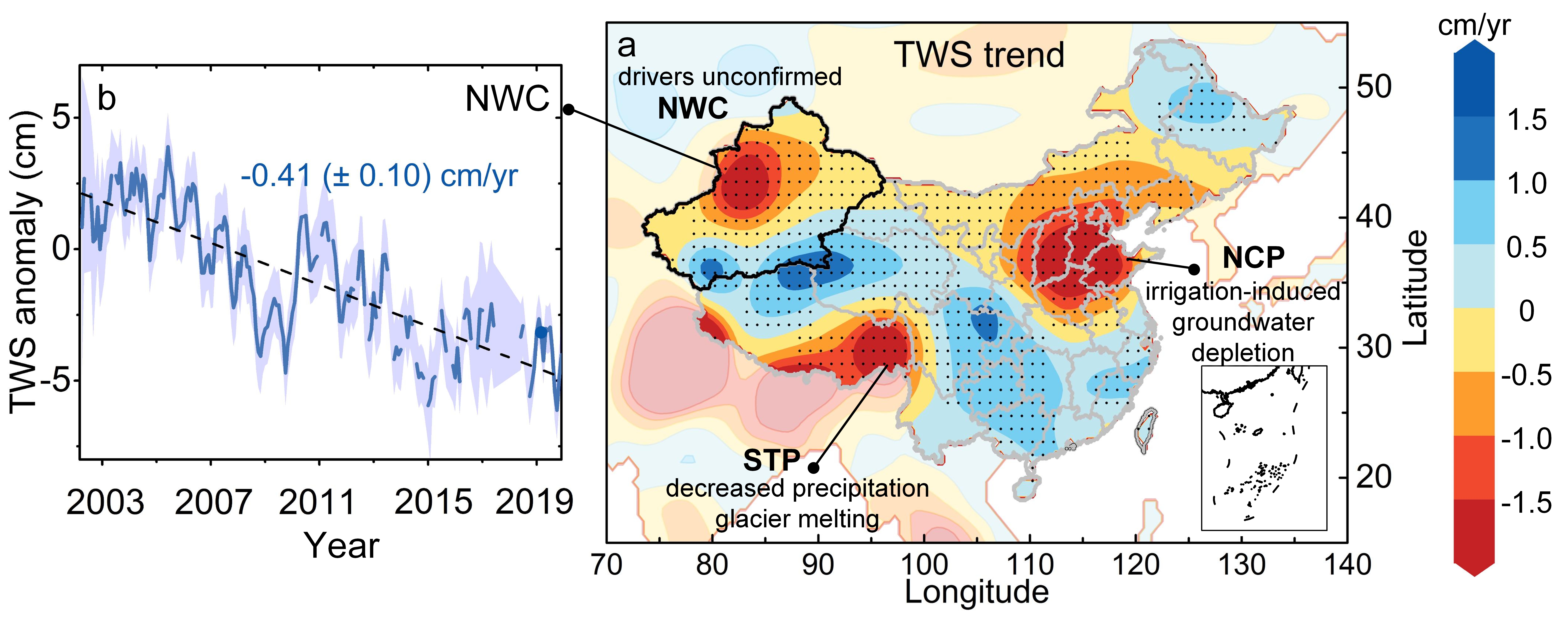Theme 2
Supporting sustainable land management for food-water security and climate action
Sustainable land management encompasses diverse strategies that shape terrestrial ecosystems, balancing human needs for food production, water resources, biodiversity conservation, and climate regulation. My research on this theme develops innovative monitoring frameworks and analysis techniques to address challenges arising from the land use decisions and their environmental consequences.
Unraveling agriculture and water sustainability in arid agricultural regions
Rising global populations have increased food demand. Yet enhancing food production threatens water security, as agriculture is the largest
consumer of the world’s freshwater resources. My study (Lai et al., 2021, ERL) illustrates such threats in Northwestern China (NWC), reporting that the increasing irrigation
to support ongoing cropland expansion has led to a massive water depletion over the past two decades. NWC is a typical dryland region known
for severe region-wide water depletion, yet the underlying cause has been controversial: glacial melting or agricultural activity.
Understanding such a cause is essential and urgent as this vast dryland faces dual challenges in food production and water scarcity.
Using multi-source datasets (satellite product, reanalysis data, and census statistics), my study revealed an unsustainable water use
pathway of the irrigation-supported cropland expansion in drylands, and suggested that glacial melting is unlikely to be the primary
driver of the decade-long water depletion in NWC.

The long-term dynamics of total water storage (TWS) in China from 2003–2019.
Quantifying carbon budget in East Africa (EA) to inform future land management programs
Large-scale land restoration initiatives have been actively pursued in EA for sustainable development and climate adaptation.
While these efforts can significantly reshape carbon dynamics and evolution, considerable uncertainties persist regarding their
magnitude and trajectories. I am developing a state-of-the-art carbon monitoring system (CMS) in EA that integrates satellite observations
with advanced modeling (Lai et al., in preparation-C). This CMS system assimilates multiple satellite datasets (e.g., leaf area index and soil moisture)
into the Community Land Model 5 (CLM5) through Data Assimilation Research Testbed (DART) and incorporates spatially varying parameters for soil microbial
processes from PROcess-guided deep learning and DAta driven modeling (PRODA) approach. This system can track carbon stock and fluxes (sinks/sources)
and verify the climate impact of restoration programs.